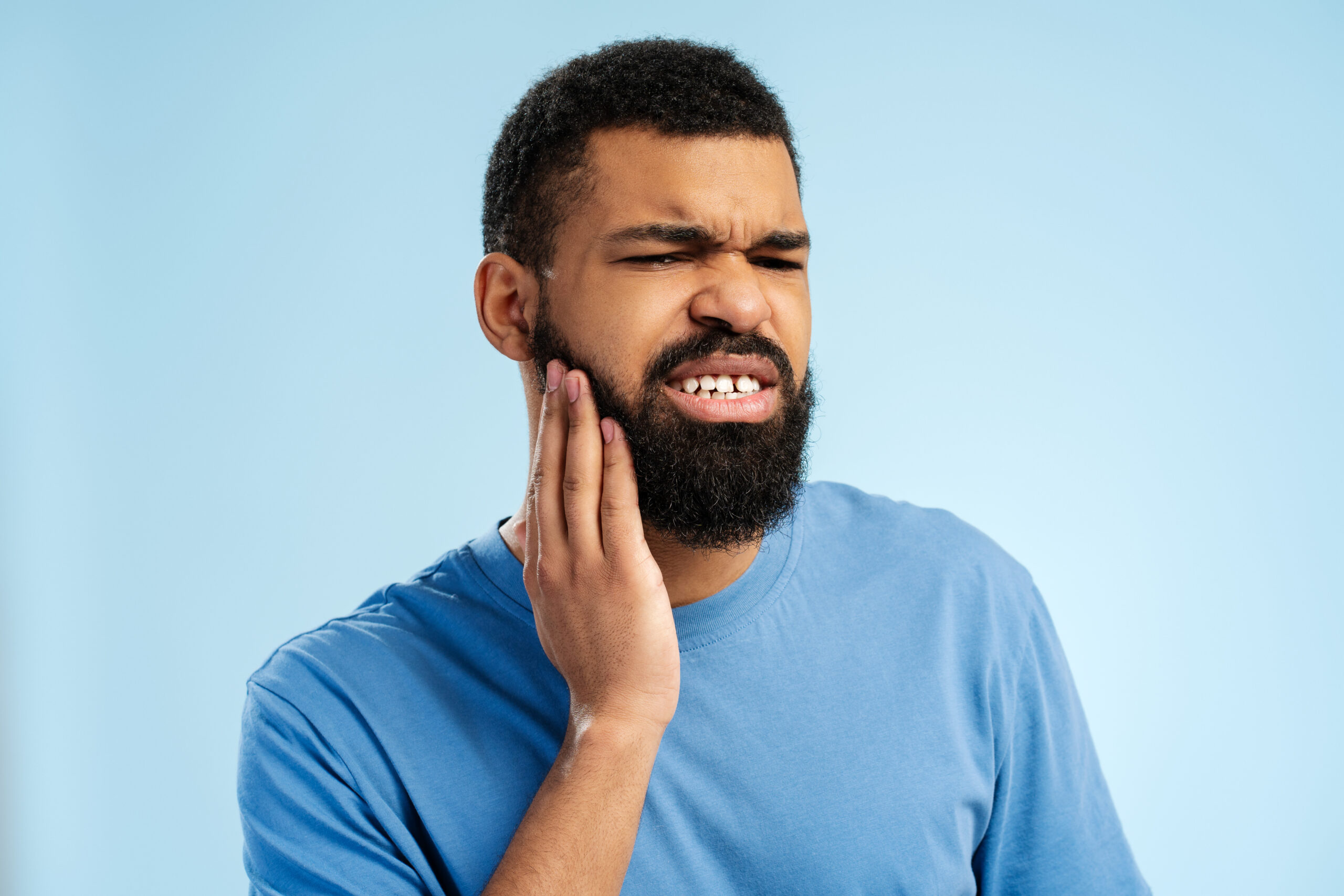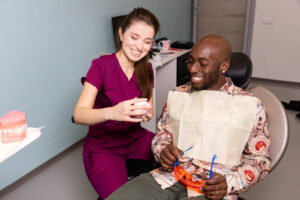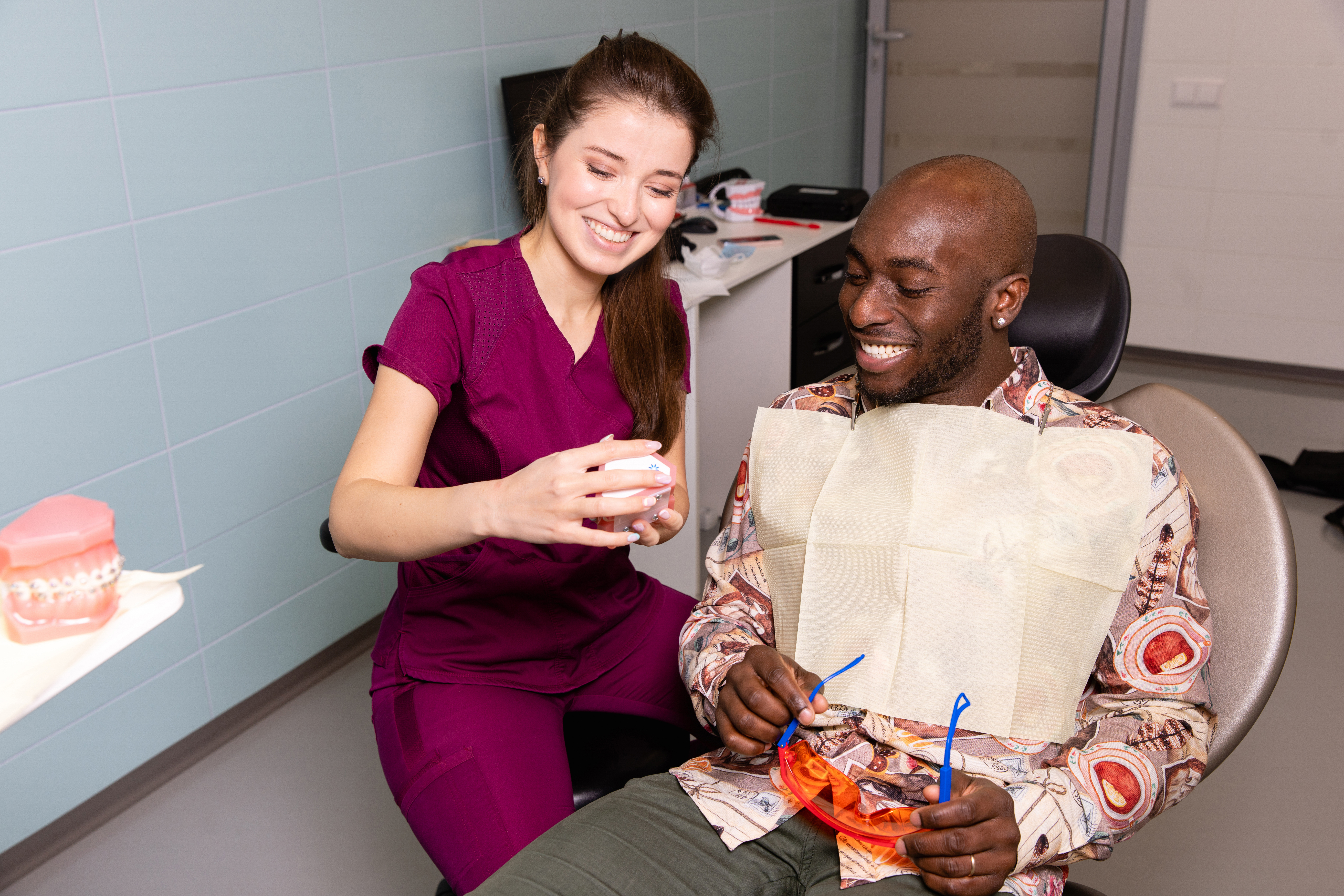- What is tooth sensitivity?
- What is teeth chattering?
- How tooth sensitivity and teeth chattering are linked
- Signs that you may have bruxism
- Treatment options for bruxism
- Strategies to prevent bruxism from occurring
Sensitive teeth and teeth chattering are dental conditions that can lead to severe consequences if not treated. However, although it would appear that tooth sensitivity and teeth chattering are two separate conditions, they are often closely linked to one another.
The good news is that once we identify the link, taking care of one condition may solve the other.
What is tooth sensitivity?
That sharp pain you feel in your mouth when stepping outside into cold weather or drinking very hot or cold beverages could be a sign of tooth sensitivity. This is a reasonably common condition brought on by tiny cracks forming on our tooth enamel as we age. These cracks expose the soft tissue inside our teeth called dentin, which is sensitive to sudden temperature changes when hot coffee or cold air comes into contact with it. The result? Sharp pain.
Brushing too hard can also trigger pain due to tooth sensitivity, as well as gum recession.
What is teeth chattering?
Many people relate teeth chattering to being cold. This is no cause for concern; it is simply a side effect of shivering, your body’s natural way of producing heat by causing your muscles to contract and relax rapidly. When this happens in your jaw muscles, your teeth might start to click together, or “chatter”.
The remedy is simple: go indoors, put on a warm sweater, wrap yourself in a cozy blanket, and sip a hot beverage.
However, teeth chattering can also signify something more serious, such as a fever-inducing infection your body is trying to fight. It may also be a side effect of a nerve condition called oromandibular dystonia, which triggers involuntary contractions in the jaw or face muscles, causing your teeth to chatter.
When feeling stressed, anxious, or panicked, some people grind their teeth together in response, a condition known as bruxism.
Other causes of bruxism include problems with your bite alignment, having crooked or missing teeth, or issues with the temporomandibular joint (TMJ), which connects your lower jaw to your skull. Sleep disorders such as sleep apnea can also trigger bruxism.
If the symptoms that cause bruxism are not addressed, you can begin to experience jaw pain and headaches and are at increased risk of wearing down your tooth enamel, chipping your teeth, or damaging your gums.
How tooth sensitivity and teeth chattering are linked
The relationship between tooth sensitivity and teeth chattering starts with bruxism. Grinding your teeth can wear down your tooth enamel, exposing the dentin underneath and leading to tooth sensitivity and tooth pain when the dentin is exposed to sudden temperature changes.
Other oral health problems that can result from bruxism and chattering teeth include tooth decay, tooth fractures, and even tooth loss. Restoring your smile from the damage caused by these conditions can require extensive work, such as a root canal, or the application of dental appliances, including crowns, bridges, dental implants, or even full or partial dentures.
Signs that you may have bruxism
You might not be aware that you are grinding your teeth, as many people do it in their sleep, making self-diagnosis often challenging. However, along with tooth sensitivity, there are signs that you may have bruxism, such as:
- Teeth that look flattened, eroded, or worn down
- Pain in the neck, face or jaw
- Lockjaw
- Teeth that seem loose
- Waking up from sleep with a headache or a face that seems tight
- Waking up with clenched fists due to stress or anxiety manifesting itself in other muscles in addition to the jaw
Treatment options for bruxism
Solving the root causes of bruxism can help minimize teeth chattering and reduce the risk of tooth sensitivity. Discussing the situation with your dentist can help, as they will work closely with you on a treatment plan to help protect your teeth from the adverse effects of bruxism. In many cases, your dentist will be able to tell if you grind your teeth before you even know you did!
Here are some of the options your dentist might recommend to address bruxism:
- Wearing a custom fitted mouthguard that will protect your teeth from the effects of daytime or nighttime grinding
- Muscle relaxation exercises to bring relief to tight, clenched muscles
- TMJ massage to relax the jaw muscles
- Mindfulness routines such as yoga to alleviate stress
- Better sleep habits, such as avoiding caffeine before bed
- Visiting a sleep clinic for a sleep study to determine if sleep apnea is present
Strategies to prevent bruxism from occurring
You can stop teeth grinding before it has a chance to start with several simple strategies that will protect your teeth from sensitivity and damage:
- Practicing stress-busting mindfulness and muscle relaxation routines
- Ensure you are getting healthful sleep
- Follow a nutritious meal plan
- Brush twice daily with fluoride toothpaste and floss at least once per day
- Visit your dentist regularly for a complete checkup
If you are not sure about whether you suffer from bruxism or have any questions about how to treat or prevent it, make an appointment with the dental team at Yonge Eglinton Dental. We’ll conduct a thorough examination and present practical options on how to maintain a bright, beautiful smile free from pain, sensitivity, or chattering.
Learn more about preventing bruxism, tooth sensitivity, and teeth chattering from the dental experts at Yonge Eglinton Dental in Toronto
Talk to our dental health team when you are ready to optimize your oral health. We will work together to ensure your teeth and gums not only look great but are strong and healthy as well. Make an appointment for an office visit today by calling our office at 416-932-2222 or booking online. We look forward to seeing you!
Are you concerned about visiting the dentist? Read about how we protect the health and safety of our patients and staff so your family can seek proper dental care with peace of mind.








